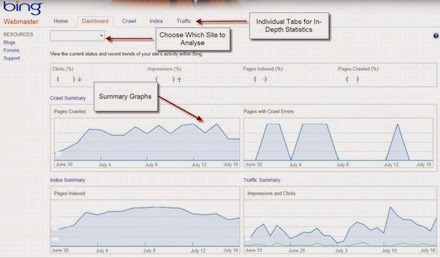
Check URL
Security
Verification
Indexing
-- Site structure
-- Pages on search
-- Links to website
-- Excluded pages
++ Indexing
--- Number of requests
--- HTTP codes
--- Pages visited by robot
--- Webpages available on Yandex search
--- Links to website
--- TIC
Indexing options
-- Robots.txt analysis
-- Sitemap files
-- Main mirror
Search queries
-- Popular queries
-- History
-- My regions
++ My searches
--- Statistics
--- Settings
Site geography
-- Site region
Appearance in search results
-- Interactive answers
-- SERP links
-- URL letter case
1) Yandex Add a site

2) Yandex Number of robot requests
According to Yandex : The following section contains information about the total number of Yandex indexing robot requests to your site, as well as the number of connection errors that occurred while attempting to access your site. Connection errors are normally caused by incorrect server or DNS configurations. Please contact your server administrator if any of these errors are detected. This information is updated daily and will be available for one day. Time according to UTC.
http://webmaster.yandex.com/site/index-history/amount.xml?host=*
3) Yandex HTTP status codes
According to Yandex : While indexing your site, the Yandex robot sends requests to your web server and receives various HTTP codes in response. Temporary server problems may lead to pages being removed from the search index. You can find information about HTTP code responses below. Check your server log to find out the address of any webpage that issues an HTTP code when requested by our robot. You can check your server response at any time using our Server response check tool. This information is updated daily and will be available for one day. Time according to UTC.
http://webmaster.yandex.com/site/index-history/httpcodes.xml?host=*
4) Yandex Robots.txt analysis
According to Yandex : When the page opens, the "robots.txt" field will contain the file downloaded from your website. To find out if our robot will visit the pages given in the "URL list" window, click "Check". By editing the rules you can create a robots.txt file that's suited to your website. Please remember that by simply doing this the file on your website will not change. You will need to manually upload the updated file to your website for the changes to take effect.
http://webmaster.yandex.com/site/robots.xml?host=*
5)Yandex Search queries "My regions"
According to Yandex : Select the regional search results statistics you would like to receive. Then in around a week's time statistical information about displays and clicks for these queries will appear in the "Popular queries" section. You can choose up to a maximum of 25 regions.
http://webmaster.yandex.com/site/requests/regions.xml?host=*
This is one fabulous option to analyze search queries...
6) What is TIC ?
According to Yandex :
A Citation Index (CI) is a scientific means of quantifying the “importance” of a scholar's research or work. The number of links to a piece of work from other sources determines the index value of that work. However, to determine the importance of a piece of research as accurately as possible, the quality of these links should be considered along with the quantity. Academic publications, newspapers and entertainment magazines may all link to a particular piece of research. The relative weight of links on these sources varies. Our Thematic Citation Index (TIC) determines the “credibility” of internet resources based on a qualitative assessment of links to other sites. The greater the quality the more “weight” the link is said to have. This indicator is calculated by a specially developed algorithm. The similarity in content between the source and the site to which it links, plays an important part in this equation. The number of links to a specific site also influences the TIC value, but the TIC is not ultimately defined by the quantity of links, but the total of their weights. As a means of determining the credibility of various internet resources, we employ this method to calculate how accurately sites are categorized in Yandex.Catalog. The TIC is not purely a quantitative indicator, so we use a number of rounded figures, which help us evaluate the “importance” (“credibility”) of resources in each area (category). The concept behind the Thematic Citation Index is quite simple. As a general rule, people who create websites pay close attention to the content both of their own website and the sites to which they link (as they are effectively recommending this content to their visitors). Our TIC takes into account links to other sites and assigns each link a "weight" (a value) depending on the credibility of the linking site.












